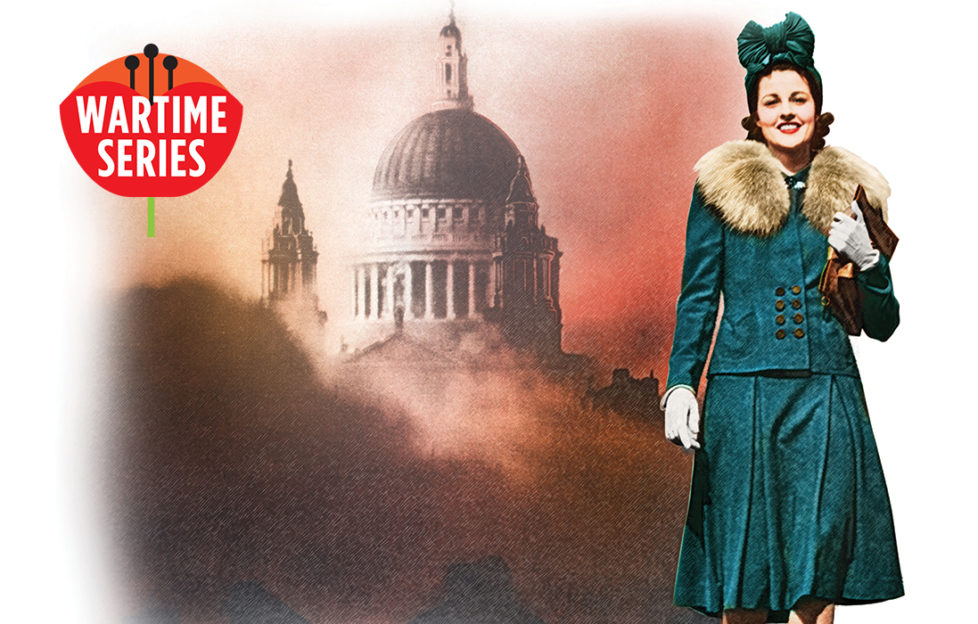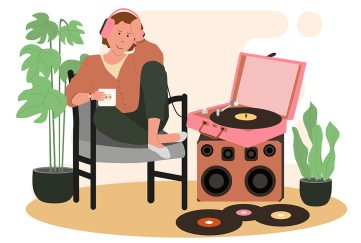Too Late For Goodbyes

WRITTEN BY HELEN CAREY
The last thing Maggie wanted was to go hospital visiting. But had fate finally sent her to the right place at the right time?
Maggie was late arriving at the hospital, and as she finally reached the heavily sand-bagged doors, she suddenly knew she wasn’t going to be able to go in. She just couldn’t do it. She had been late last time too, and that made it a hundred times worse.
She had told Mrs Rutherford, the local WVS organiser, that hospital visiting was one of the things she didn’t want to do. But yesterday there had been a bit of a rumpus because some of the ladies felt they were doing too many of the nasty tasks, like the laundry for bomb victims or sluicing out the evacuation centres.
So this morning Mrs Rutherford had decided to draw lots. She had written the various chores on scraps of folded paper and, somehow, Maggie’s hand had been drawn to the piece with “hospital visit” written on it. She had tried to swap, but Mrs Rutherford was not the kind of person you could argue with.
Perhaps fate is playing a hand
“I believe it’s time you faced up to things again,” she had said briskly. “So perhaps fate is playing a hand.”
Now, as she stood shivering outside the hospital, Maggie wished fate had minded its own business. Then she thought of the injured Polish Captain she was to be visiting. It couldn’t be much fun lying in a hospital a million miles from home, especially as the busy nursing staff at the Wilhelmina Hospital weren’t exactly known for their bedside manner.
For all she knew, the poor man was looking forward to her visit. All of a sudden she felt she couldn’t let him down.
As she pushed open the heavy doors, the hospital smell hit her like a slap around the face. A mixture of ammonia, iodine and floor polish, it made the hairs on Maggie’s neck stand up on end.
On the wall behind the reception desk was a poster of Winston Churchill.
This is no time for Ease and Comfort. It is time to Dare and Endure.
Maggie gritted her teeth. “I can do this,” she whispered, and the elderly porter on the desk peered at her in surprise. “Can I help you?” he asked.
I wish someone could, Maggie thought. Dutifully she gave the name of the man she had come to visit and was directed to Ward 10.
It was the same ward. She couldn’t believe it. If fate really was playing a hand, it was certainly making sure the cards fell as badly as possible.
When she asked a passing ward nurse where she should go, and the girl waved an impatient hand towards the side rooms, Maggie felt a cold hand clutch her heart. She knew exactly which room it was going to be.
She was right.
There was the name on the door: Captain Nowak.
Pausing outside, she took a steadying breath. She needn’t have bothered, because as soon as she opened the door and looked across at the bed, all the breath left her body anyway. If she hadn’t been clutching the door handle, she would have fallen to the floor.
Then sense prevailed and she forced herself to look again – and of course it wasn’t him. It wasn’t Martin. It was just someone who looked awfully like him.
As Maggie stammered out some kind of greeting, pointing to her WVS armband in explanation in case his English wasn’t good, the man smiled, and once again her heart flipped. The resemblance was uncanny.
“My dear lady,” he spoke in an attractive, low-accented voice. He made a courteous gesture towards the chair beside the bed. “You look upset. Please do sit down.”
Gratefully Maggie lowered herself into the chair – the same chair – and tried desperately to pull herself together. It wasn’t easy with the Polish officer’s enquiring eyes on her. I hate that Mrs Rutherford, she thought, I really hate her!
“I’m sorry,” Maggie said. “It’s just that the last time I came to this… this hospital, was to… to see my husband.”
I hope he made a good recovery?
Captain Nowak raised his eyebrows slightly. “I hope he made a good recovery?”
Maggie stared at him. Martin used to lift his eyebrows in that same quizzical way, especially when he was amused. But this man didn’t really look amused; he looked more concerned. At once Maggie realised she had been tactless. Nevertheless she didn’t feel she could lie.
“Well, no,” she muttered, trying to swallow the lump in her throat. “Actually, he died. I was late getting here, and he died just a few minutes before I arrived.”
She saw the man flinch. Oh no! she thought, now I’ve upset him too. But at least she hadn’t mentioned that Martin had been lying in that very same bed.
“I was at work,” she said, “when I heard there’d been a bomb in our road. Martin had been trying to help rescue a neighbour, and her house collapsed on top of him. I was as quick as I could be, but it was all a bit frantic, and by the time I got here…” She stopped and swallowed hard. “If only I had been ten minutes quicker, I could have said goodbye.”
She couldn’t imagine why she was telling this man all this. She hadn’t told anyone else before, not in detail. But now she’d started, she suddenly couldn’t stop.
He was looking at her so kindly, so compassionately. She grimaced.
“What made it worse was that Martin hadn’t wanted me to work. And if only I had stayed at home, as he wanted, I…”
The officer moved restlessly in the bed. “I am sorry,” he said. “It must have been a very bad time for you. Had you been married long?”
Fifteen years of complete happiness, gone in a flash
Maggie nodded. “Fifteen years,” she said. “I can hardly believe it, even now. Fifteen years of complete happiness, gone in a flash.”
He smiled. “I’m glad you were happy,” he murmured. “It is a privilege in life to be happy.”
Maggie looked at him in surprise. She had never thought of it quite like that before, but he was right. She had been lucky, in that at least.
“Yes, we were privileged. Especially now, in this horrible war, when so many people are dying all the time.” She sighed, thinking of the ghastly casualty lists that now regularly appeared in the back of the paper. “Even so,” she said. “I feel so guilty that I didn’t get here in time to tell him how much I loved him.”
Captain Nowak smiled. “I’m sure he knew,” he said. “It is easy for me to see in your eyes how much you loved him. I can’t imagine he didn’t see that too.”
Maggie felt herself flush, but she was grateful for his kind words. She tried to smile. “And now I feel even more guilty,” she said, “because I was to bring comfort to you, not the other way round.”
The Captain laughed; a low musical sound that made her involuntarily clench her hands. “You have brought me comfort,” he said. “I am a long way from home, and you have reassured me there is still beauty and humanity even in this dark world in which we find ourselves.”
Maggie looked at him uncertainly, but before she could respond, he shook his head. “You should not feel guilty,” he said quietly. “It is the fifteen years that matter, not the ten minutes at the end.”
Now, to her dismay, she could feel the tell-tale quiver of her lips. She knew the feeling all too well; since Martin had died she had cried every day. She didn’t want to cry in front of this stranger, but it was his fault for being so kind. Everyone else had been brisk and matter-of-fact. The Blitz had seen to that. Too many people had lost loved ones and you were expected to pull yourself up and carry on.
Ridiculously, what she really wanted to do now was lean over and bury her face in his shoulder. Luckily, before she made even more of a fool of herself than she already had, he spoke again.
“What work were you doing?”
“I was an air-raid warden,” she said. “I felt as though I wanted to do my bit.”
“But your husband thought you should have stayed at home?”
She nodded. “It was the only thing we ever argued about.”
“So,” Captain Nowak said. “A dangerous job.” He gave another of his charming smiles. “I think if I had a lovely wife like you, I would also have preferred her to stay in safety at home.” He tapped his chest in an oddly foreign gesture.
“But deep inside, I would have been very proud she was prepared to do her duty.”
Once again Maggie found herself incapable of speech. She was almost glad to hear the bell for the end of visiting.
“I’m so sorry,” she said, as she stood up. “All I’ve done is talk about myself.” Then she surprised herself by saying, “Why don’t I come again tomorrow? Then you can tell me all about you?”
To her disappointment, he shook his head, but his smile was regretful. “I don’t think I’ll be here tomorrow,” he said.
“But why not?” Maggie felt a stab of alarm. Surely he didn’t mean…? But then a more logical explanation presented itself. “You mean, they’re moving you?”
He inclined his head. “I believe so,” he said. He extended his hand. “But it has been a pleasure to see you, Maggie.”
She felt the brief, warm pressure of his fingers as they shook hands, then she was back in the corridor, joining the throng of other visitors leaving their loved ones.
Maggie had reached the stairs before she realised that she hadn’t thanked him properly – and she needed to thank him because, even in the minute or so it had taken her to walk from his room to the ward doors, she had become aware that a huge weight had lifted from her shoulders.
Yes, she would grieve for Martin for the rest of her life, but she no longer felt guilty. She had tried to get there in time; it wasn’t her fault that she had failed. As Captain Nowak had said, it was the fifteen years that mattered, not the last ten minutes.
Turning on her heel, she began to retrace her steps back along the corridor, through the swing doors, across to the side rooms. She heard a nurse calling to her that visiting time was over, but Maggie ignored her.
Now the doors all looked the same. Which one was it? Yes, here it was, Captain Nowak on the label.
Quickly she pushed the door open, the words of gratitude already on her lips.
She never spoke them.
The bed was empty. Not only empty, but neatly made, hospital corners and all.
As Maggie gazed in disbelief, the nurse bustled in behind her. “What are you doing in here?” she asked. “Visiting time was over ten minutes ago.”
Where has he gone?
Maggie turned to face her. “But Captain Nowak,” she gasped. She gestured at the label on the open door. “Where has he gone?”
The nurse looked startled by her tone. “Captain Nowak died yesterday,” she said. “We should have taken the label down and let the WVS know. I’m sorry if you’ve had a wasted journey.”
Maggie stared at her, then at the empty, pristine bed. Suddenly she was conscious of an odd sense of warmth in her heart. She shook her head.
“No,” she said slowly. “My journey wasn’t wasted. Not at all.”
Don’t miss our other war stories…
-
A Boy Called Chancer
-
The Little Evacuee serial
-
Soldiers of the Somme
-
Precious Picture Of Love
-
Goodbye, Sweetheart




